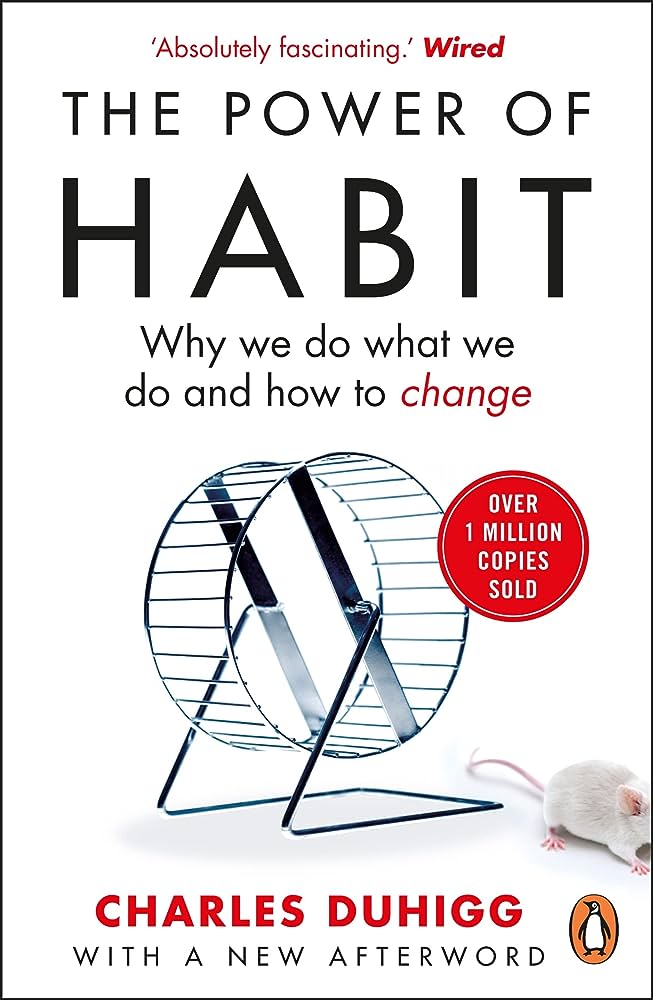The Power of Habit Book by Charles Duhigg | How do our habits work and where exactly do they originate in our brain? | All this this book will teach you
The Power of Habit Book Review – (The Karbhari News Service) – New York Times award-winning economics journalist Charles Duhigg takes us on a journey into the fascinating and fascinating scientific world of habits in his book ‘The Power of Habit’. (The Power of Habit Book)
In this book, he explores why some individuals and companies struggle for years to transform themselves, while others transform themselves overnight. He visits various laboratories to learn about brain scientists’ ongoing efforts to discover how our habits work and where exactly they originate in our brains, and meets Olympic swimmer Michael Phelps, Star Bucks CEO Howard Schultz, and civil rights pioneer Martin Luther King Jr. ) they demystify the importance of habit in their success.
The culmination of them all is this compelling narrative and powerful exploration: what and how habits can be useful for regularizing exercise, losing weight, raising smart kids, increasing performance, building unique establishments, and more. It is important to know the meaning of this. Using this newly developed science, we can bring about a complete transformation in our business, our society and our lives.
The Habit Loop
At the heart of Duhigg’s thesis is the concept of the “habit loop,” which consists of three components: cue, routine, and reward. Understanding this loop is essential to understanding how habits are formed and how they can be changed.
Q: This is the trigger that starts the habit. It could be a particular time of day, emotional state or set of surroundings.
Routine: This is the behavior or action that follows a cue. It is a habit in itself.
Reward: This is the benefit from the routine, which reinforces the habit loop.
By identifying these factors in our own lives, we can see how our habits are formed and what drives them.
Keystone Habits
One of the most fascinating concepts in the book is the “keystone habit.” These are habits that influence other areas of our lives. For example, regular exercise is a key habit for many people; It not only improves physical health but also boosts mood, productivity and financial habits.
Identifying and focusing on keystone habits can lead to significant positive changes, Duhigg says. For businesses, keystone habits can change corporate culture and improve overall performance.
The science of change
Changing a habit doesn’t mean eliminating it completely, but replacing it with a new routine that provides the same reward. Duhig emphasizes the importance of trust and community in this process. Belief in the possibility of change and having a supportive community can make a significant difference in breaking old habits and forming new ones.
Duhigg illustrates this with numerous examples, from the story of Alcoholics Anonymous to the way Starbucks trains its employees to handle stressful situations using habit loops.
Real-world applications
The book is full of real-world examples of how understanding habits can lead to success. Duhigg discusses how companies like Procter & Gamble used the science of habit formation to effectively market products. He also explores how organizations like Alcoa changed their culture by focusing on safety habits.
For individuals, Duhigg’s insights offer practical advice on how to change personal habits. Whether adopting a healthier lifestyle, improving productivity or breaking bad habits, the principles outlined in the book provide a roadmap for change.
conclusion
“The Power of Habit” by Charles Duhigg is not just a book about habits; This is a guide to understanding and harnessing the power of habits to improve your life and business. By breaking the cycle of habit and focusing on keystone habits, Duhigg provides a framework for creating lasting change. Whether you’re seeking personal improvement or organizational success, this book offers valuable insights and practical strategies.
By understanding the power of habits, we can control our actions and ultimately our lives.
—
